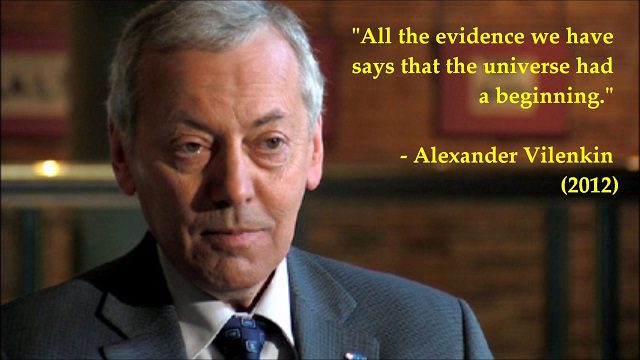
This exchange took place on the Debunking Christianity blog, underneath a post by John W. Loftus, called No More Funerals! [which appears to now be a defunct link]. Words of “DagoodS” will be in blue; some others in various colors as indicated. Indentation (excepting Bible verses) indicates my own words being cited by my opponents.
* * * * *
You would have tended toward the latter in your former theology, but most non-Protestant Christians take a little more of a nuanced view.
[Bruce]
Meanwhile, there is no ultimate justice in the atheist world. Hitler, Stalin, Mao, and Jack the Ripper end up in the same place (nowhere) that John Loftus and DagoodS end up.
Sorry; I find that view of reality far more disturbing (apart from the question of which view is true) than the Christian notion of hell, where someone only goes there if they choose to reject God and suffer the consequences.
The atheist “consequences” (i.e., of the entire worldview) makes life far more troubling and ultimately meaningless than the doctrine of hellfire, much as you guys will protest that till you’re blue in the face.
No one has to go to hell, in the Christian view, rightly understood. But we all have to cease existing and only have a 70-year or so dinky, miniscule lifespan in the atheist view. And then those of you who favor abortion would disallow even that for those who must die by those atrocious ethics. They get obliterated out of existence before they have even drawn one breath in this world.
And you want to wax indignant about hell?
[John W. Loftus chimed in (tolerant and respectful of the views of others, as usual) ]:
Nothing that I am aware of. I would say that this is covered pretty well by the word dreadful. The rest was obviously rhetorical and semi-sarcastic understatement, subtly aimed at atheists who are always going on and on against hell, as if it were an indictment against God (which it is not at all). But as it involved some subtlety and my characteristically dry wit, I’m not surprised that some would misunderstand it.
Yes indeed Dave, it is cruel for the christian (and would be for god if it existed) to use hell as a threat.
As I agree. I don’t talk about hell as a threat, but as a potential reality for those who choose to rebel against God. If it is a threat at all, it is in the sense that cancer is a “threat” to those who insist on smoking, or venereal disease is a “threat” for those who insist on promiscuity and sexual immorality. The rational person doesn’t blame the laws of nature for those bad things coming about, but rather, the person (who should have known better, based on our knowledge of causation for these horrors) who did the things that were the cause of them coming about.
When a criminal rebels against the laws of a society and is caught, convicted, and imprisoned for life (or executed, to make the analogy fit even better), we don’t say that the “cause” of his imprisonment or execution was the laws of the state that he violated, and rail against the very notion of law as the horrible, unjust cause of this guy’s suffering! He brought about his own demise by going astray. Likewise, with human beings, God, and hell.
The penalty for very serious crime in a civil sense is life imprisonment or execution. That’s just how it is. Law itself is not to be blamed.
The penalty for very serious sin and rebellion against God in spiritual reality is eternal torment in hell. That’s just how it is. God (the ground of moral law) is not to be blamed for that.
Well, technically (epistemologically), the word suggest would have been a better choice here than prove. But I still say that the desire is more likely to correspond to the things that are desired actually existing, rather than non-existent. This was the point of the analogies that followed. It was not so much hard philosophical “proof” in mind as it was common sense and experience of our desires and whether or not they are able to be fulfilled. Peter Kreeft makes a long elaborate “argument from desire,” drawing from and expanding upon C. S. Lewis. I think it is a rather neglected argument in the Christian “arsenal.”
In high school, I may have desired the head cheerleader to want to date me, but the fact she glanced my way in class is not proof of my desire. Simply because we desire something to be true, does not make it true.
I didn’t say that it did (I fully agree; that would be most foolish indeed). Don’t take this criticism too far. I said that the desire, in my opinion, made it probably more likely that the desired end exists, than that it does not. This is obvious from life. So in your analogy above, you desired to have a date with the cheerleader. This proves that it is possible that such a thing as a date with the cheerleader exists. It may be unlikely, but it is untrue that the desire proves or suggests that the thing is absolutely unattainable or nonexistent. more so than the contrary (as you atheists would make out with regard to the theist longing for God and heaven).
We have no evidence of life after death. None. NDE’s don’t even come close.
Nor do we have any compelling evidence for the cause of the Big Bang. There are lots of things that don’t have evidence; e.g., extraterrestrial life. But then again, you assume from the outset the unreasonable assumption that scientific knowledge is the only sort that gives us reliable information. You would deny the miraculous and revelation: precisely the things that we Christians would bring forth as evidence for life after death.
Therefore a “desire” for it is not a proof, but rather a warning we have painted a wish and now look for “proof” with anything that sticks.
It is a strong indication of existence, precisely on the analogical basis that I have described; particularly because the desire is so widespread, and even had many many defenders in the philosophical world, through the centuries.
I have said it before, I will say it again. The idea of this is NOT to pick the team with the snazziest uniforms and stick with them regardless of the score.
Sure; not exactly clear what this means . . .
Hey, the concept of a place where we will be with people we love and can socialize for all eternity, where wrongs will be avenged, and good acts rewarded is a great idea. So is a perpetual motion machine. Doesn’t make either true.
I didn’t say it did. You misrepresent my argument if you think I was claiming that the mere desire for something is proof that it exists. I did use a word that should have been softened, but my use of “likely” shows what I had in mind. Context (as almost always) shows that I was not arguing as foolishly as you make out. And now my clarification makes it even more clear. This is one reason why I love dialogue.
The fact that we all seem to have this interior, gut-level sense of right and wrong and desire for justice suggests to me that there is absolute justice in the universe, grounded in God.
I wouldn’t argue in that way. That is more of a Calvinist approach. The Catholic and Orthodox and non-Calvinist Christian argument is that God builds upon nature. If we (human beings) feel a certain sense of morality naturally, God builds upon that and presents His fuller revelation to us, that expands upon what we already know.
C. S. Lewis argued somewhere that the almost universal agreement on many basic moral precepts doesn’t show that Christianity is false because these things are ingrained with the necessary aid of religion (Christian or otherwise), but the opposite: they are ingrained because God put the moral sense in human beings in the first place.
So which is it – is our sense of Justice in line with God’s or not?
I say it is. But it is also likely, granting this, that some things about God or what He does will be difficult for us to understand. We derive from Him; we’re made in His image, but we are finite and created and don’t know a millionth of what He knows. So for us to find certain things difficult (stuff like you’re about to bring up now!) is totally to be expected.
See, my sense of justice would say that an authority, simply to demonstrate loyalty to the authority, requiring its subject to kill its own child would be an injustice. Yet your God does not. (Abraham and Isaac.)
But He didn’t require Abraham to kill his son (as we see at the end of the story). It was a test of faith. How far would Abraham’s faith go? Would he do that thing which is incomprehensible to him. Kierkegaard writes an entire marvelous book about this (Fear and Trembling). On the other hand, even nations sometimes require able-bodied persons to fight in wars that will get some of them killed. People die for their country. So do you argue, also, that this is inherently unjust for a country to demand of a mother the possible life of her child? It becomes a reductio ad absurdum. You would have to be a pacifist.
The professions of firefighter or policeman involve a given risk of death. People are willing to give their life for someone else. De we say that “society” is unreasonable in having things like firefighters, because potential sacrifice is involved? Yet you would blame God in this instance. You’re inconsistent. God is the one who does have power over life and death, so even if He did demand someone’s life, there would be no grounds that this was unjust, because He gave the life in the first place, as the Creator. And there is eternal life.
What is truly unjust, as I keep saying to atheists, is abortion, given your presuppositions. You take away the life that is all that this preborn child has, or will ever have. This is the true human sacrifice, going on every day!; not Abraham and Isaac, which wasn’t even a sacrifice, but a profound test. Abortion is the sacrament of atheism and radical feminism. That’s what your vision of “life”(and the supposed “happy life”) leads to: death and destruction. But Christian death may come about because God the Creator wills it, and He has every prerogative to do so; and then there is an eternal life, so that the life of that person isn’t truly over, anyway; it just becomes different and better (presuming salvation).
I would think that holding the value of silver and Gold over the life of a two day old boy is unjust. Yet your God does not. Numbers 31:26-28. I would think that enforcing a genocide for the actions of one’s great-great-great-great-great-great-great-great-grandparents would be unjust. Yet your God does not. (Amalekites)
Christians have explained this stuff a million times, and the atheist will never understand it. Because God is Creator He also has the prerogative to judge. This is analogous to our experience. Society takes it upon itself to judge the criminal and punish him if he supercedes the “just” laws that govern the society, in order to prevent chaos and suffering. If that is true of human society (one man to another), it is all the more of God, because He is ontologically above us (Creator and created).
So it is perfectly sensible and moral to posit (apart from the data of revelation) a notion of God judging both individuals and nations. God’s omniscience is such that He can determine if an entire nation has gone bad (“beyond repair,” so to speak) and should be punished. And He did so. Now, even in a wicked nation there may be individuals who are exceptions to the rule. So some innocent people will be killed. But this is like our human experience as well. In wartime, we go to war against an entire nation. In so doing, even if it is unintentional, some innocent non-combatants will be killed.
But it’s also different in God’s case because He judged nations in part in order to prevent their idolatry and other sins to infiltrate Jewish (i.e., true) religion. He also judged Israel at various times (lest He be accused of being unfair). In any event, it is not true that nations or individuals were punished because of what “
He decides to be merciful and grant us grace to do better, but He is under no obligation to do so, anymore than the governor is obliged to pardon convicted criminals. Again, the societal analogy is perfectly apt. If someone rebels at every turn against every societal norm and law and appropriate behavior and so forth, is society to be blamed? Say someone grows up thinking that serial rape is fine and dandy and shouldn’t be prevented at all. So he goes and does this. Eventually, the legal system catches up with him and he gets his punishment. He rebelled against what most people think is wrong, and more than deserved his punishment.
We don’t say that there should be no punishment. We don’t blame society for his suffering in prison. We don’t deny that society has a right to judge such persons. So if mere human beings can judge each other, why cannot God judge His creation, and (particularly) those of His creation that have rebelled against Him at every turn? What is so incomprehensible about that? One may not believe it, but there is no radical incoherence or inconsistency or monstrous injustice or immorality in this Christian (and Jewish) viewpoint (which is what is always claimed by the critics).
My sense of justice would be to hold each person accountable for knowledge based upon persuasive evidence. Your God does not.
That is how the ultimate judgment works; absolutely. Each man will give his own account (Rom 14:10; 1 Cor 3:13; 2 Cor 5:10; Rev 22:12). So again, God’s way is analogous to our own (and your own). Hence, Scripture teaches:
Jeremiah 31:30 (RSV) But every one shall die for his own sin; . . .
Numbers 27:3 Our father. . . died for his own sin . . .
Deuteronomy 24:16 The fathers shall not be put to death for the children, nor shall the children be put to death for the fathers; every man shall be put to death for his own sin. (cited in 2 Kings 14:6; 2 Chron 25:4)
Now obviously, the Christian and the Jew holds that Mosaic Law came from God to Moses, and thus represented how God viewed morality. And this principle was within it. So it is incorrect to say that God is judging someone for someone else’s sins. It’s a distortion of what the Bible teaches. This true teaching is made even more explicit in the entire chapter Ezekiel 18:
1: The word of the LORD came to me again:
2: “What do you mean by repeating this proverb concerning the land of Israel, ‘The fathers have eaten sour grapes, and the children’s teeth are set on edge’?
3: As I live, says the Lord GOD, this proverb shall no more be used by you in Israel.
4: Behold, all souls are mine; the soul of the father as well as the soul of the son is mine: the soul that sins shall die.
5: “If a man is righteous and does what is lawful and right –
6: if he does not eat upon the mountains or lift up his eyes to the idols of the house of Israel, does not defile his neighbor’s wife or approach a woman in her time of impurity,
7: does not oppress any one, but restores to the debtor his pledge, commits no robbery, gives his bread to the hungry and covers the naked with a garment,
8: does not lend at interest or take any increase, withholds his hand from iniquity, executes true justice between man and man,
9: walks in my statutes, and is careful to observe my ordinances – he is righteous, he shall surely live, says the Lord GOD.
10: “If he begets a son who is a robber, a shedder of blood,
11: who does none of these duties, but eats upon the mountains, defiles his neighbor’s wife,
12: oppresses the poor and needy, commits robbery, does not restore the pledge, lifts up his eyes to the idols, commits abomination,
13: lends at interest, and takes increase; shall he then live? He shall not live. He has done all these abominable things; he shall surely die; his blood shall be upon himself.
14: “But if this man begets a son who sees all the sins which his father has done, and fears, and does not do likewise,
15: who does not eat upon the mountains or lift up his eyes to the idols of the house of Israel, does not defile his neighbor’s wife,
16: does not wrong any one, exacts no pledge, commits no robbery, but gives his bread to the hungry and covers the naked with a garment,
17: withholds his hand from iniquity, takes no interest or increase, observes my ordinances, and walks in my statutes; he shall not die for his father’s iniquity; he shall surely live.
18: As for his father, because he practiced extortion, robbed his brother, and did what is not good among his people, behold, he shall die for his iniquity.
19: “Yet you say, ‘Why should not the son suffer for the iniquity of the father?’ When the son has done what is lawful and right, and has been careful to observe all my statutes, he shall surely live.
20: The soul that sins shall die. The son shall not suffer for the iniquity of the father, nor the father suffer for the iniquity of the son; the righteousness of the righteous shall be upon himself, and the wickedness of the wicked shall be upon himself.
21: “But if a wicked man turns away from all his sins which he has committed and keeps all my statutes and does what is lawful and right, he shall surely live; he shall not die.
22: None of the transgressions which he has committed shall be remembered against him; for the righteousness which he has done he shall live.
23: Have I any pleasure in the death of the wicked, says the Lord GOD, and not rather that he should turn from his way and live?
24: But when a righteous man turns away from his righteousness and commits iniquity and does the same abominable things that the wicked man does, shall he live? None of the righteous deeds which he has done shall be remembered; for the treachery of which he is guilty and the sin he has committed, he shall die.
25: “Yet you say, ‘The way of the Lord is not just.’ Hear now, O house of Israel: Is my way not just? Is it not your ways that are not just?
26: When a righteous man turns away from his righteousness and commits iniquity, he shall die for it; for the iniquity which he has committed he shall die.
27: Again, when a wicked man turns away from the wickedness he has committed and does what is lawful and right, he shall save his life.
28: Because he considered and turned away from all the transgressions which he had committed, he shall surely live, he shall not die.
29: Yet the house of Israel says, ‘The way of the Lord is not just.’ O house of Israel, are my ways not just? Is it not your ways that are not just?
30: “Therefore I will judge you, O house of Israel, every one according to his ways, says the Lord GOD. Repent and turn from all your transgressions, lest iniquity be your ruin.
31: Cast away from you all the transgressions which you have committed against me, and get yourselves a new heart and a new spirit! Why will you die, O house of Israel?
32: For I have no pleasure in the death of any one, says the Lord GOD; so turn, and live.”
This is how God thinks. This is how He has revealed Himself (or in your skeptical atheist terms, how Jews, and Christians after them, have conceived of their God-that-doesn’t exist). Either case, your characterization of God (and/or how He is conceptualized) is false.
See also my papers:
Seidensticker Folly #17: “to the third and fourth generations”?
Does God Punish to the Fourth Generation?
That’s because you have not understood the above elements. you’ve been fed a bill o goods by those who distort the Bible and reason badly and illogically.
What is the punishment for adultery? My intuition doesn’t seem to find that raping the perpetrator’s wife as very just. Yet your God does. 2 Sam. 12:14
We can see this on a purely natural, human level, too. Say we raise a child to not respect elder people, or to believe in euthanasia, under false pretenses and even worse ethical reasoning. Then the time comes when we are old and sick, and our own child actively tries to knock us off, and cares little for us. Like Harry Chapin sang in Cats in the Cradle, “my boy was just like me.” No doubt there was a lot of this in David. Something helped cause the son to go astray. He was still responsible for his own sin, but there can be precipitating causes from secondary parties or agents.
Yes; God can pardon whomever He will, just as the governor of a state can. Is this unfair? One can try to argue that, I suppose. But there it is. In God’s case, we are His creatures, and we are all part of the rebellion against Him, in the sense of original sin. He offers a way out of that, but some can spurn it. David sinned and repented sincerely, from the heart. God knew his heart. And God decided to spare him, because of his importance as king and bearer of the covenant.
Or it may be that one of the murder’s relatives will become sick. (Not the murderer themselves, of course) 2 Sam. 3:29.
I went through that already, above. All these things are complex, and long discussions in and of themselves. You can keep firing out error, but it takes ten, twenty times longer to effectively answer all this falsehood. That’s why atheists (much like Jehovah’s Witnesses) love the “rapid-fire, throw out 50 things at once “routine. They know full well how much necessary work it takes to answer this stuff. Most people don’t have that amount of time or energy (not to mention, knowledge). I’ve been writing for hours.
But, alas poor David will not make it to heaven, either. Rev. 21:8
Is that so? Now here is a prime example – absolutely classic – of muddle-headed atheist “exegesis.” Clearly the verse means that unrepentant sinners will not make it in. But David repented of his serious sin. We’ve already seen above that God will grant mercy to all who do so:
But if a wicked man turns away from all his sins which he has committed and keeps all my statutes and does what is lawful and right, he shall surely live; he shall not die
The word is blasphemy.
I would think this pretty serious, eh? Apparently the appropriate punishment is kill a baby. 2 Sam. 12:15.
First of all, David’s sins were not blasphemy (I don’t know where you’re getting that). They were adultery and murder. The verse is wrong again, too. It is 12:14. Again, it is pre-philosophical language regarding God’s providence. Things were allowed to happen (including tragic events) that could be seen as a judgment on persons related to them. But it doesn’t prove that God necessarily caused them (we see that very clearly in the book of Job, where God allowed Satan to do his deeds, and do a number on Job). This was all dealt with in our previous discussion on Pharaoh, with many biblical examples provided. You didn’t get it, then, and I suspect that you won’t this time, either.
(Don’t forget, though that blaspheme of the Holy Spirit is completely unforgivable! The worst punishment of all.)
Indeed, but that is not what we’re dealing with here. It means no longer believing in God at all or calling evil good. As long as someone refuses to believe in God, and knows that He exists, He cannot be forgiven or saved. This is why you and your fellow atheists need to seriously think about that which you espouse. You could very well end up in a place you don’t want to be in. And God could say then, “why didn’t you listen to people like Dave when he shared the truth about Me with you, and you didn’t want to hear about it? That was My way of trying to reach you, but you refused and would have none of it. So I had to leave you to your fate, because I won’t force anyone to believe in Me or serve Me. I want sons and daughters, not slaves.”
In light of blaspheme of God being equated to one death, my sense of Justice would think that taking a census, if a sin at all, would be far less. But no. According to your God’s sense of Justice, taking a census is worthy of a punishment of 100,000 to 200,000 deaths! 2 Sam. 24:15.
That’s absurd. I dealt with all that business in another paper, as you know.
Wow! David’s taking a census seems like a pretty big sin. Even within OUR justice system, it would be the equivalent of killing 100,000 people.
Ditto.
So what’s the number, Dave Armstrong?
One. One person rebelling against God and spurning His free gift of salvific grace is enough for them to end up in hell by their own choice.
You indicate the concern about dispensing justice to a Hitler or a Stalin. That such persons deserve Hell. So what is the number of murders at which point Heaven becomes barred? Is it one? Is it 100,000? Is it 10 Million?
Hitler could have theoretically repented, just as, e.g., abortionist Bernard Nathanson did, after 10,000 or so (some horrendous number) murder-abortions. But it is exceedingly unlikely, because the more one sins, the more one becomes hardened in sin and against God and His grace.
See, each person’s intuition changes. If you talk to a universalist, 10 Million is not enough. Others may say one is too many. Most others would figure some number between one and 100 is too many, although what, precisely would be uncertain.
According to Rev 21:8, one murder is one too many.
If unrepented of, certainly. That’s the whole point.
And the verse indicates that anyone that lies gets the toss into hell as well.
No. It is amazing how ignorant you (an otherwise intelligent man) can be about verses like this. This is so ridiculous that I suspect maybe you are just playing a game. It’s tough to believe that you are this much out to sea. Clearly it is referring to those who persist in these sins and whose lives are characterized by various sins. Otherwise, why have forgiveness of individual sins at all? Are you denying that God forgives anyone of their particular sins?
Have you lied, Dave Armstrong? Is there a human that has not? This sure doesn’t seem very just to me!
You’re right. But since it is a gross, stupid caricature of the biblical system of morality, grace, and forgiveness, it is not my problem. Your ignorance of biblical theology is your own problem to rectify. I suppose you can’t even properly believe in Christianity if you wrongly think it is this goofy, irrational, arbitrary system. That’s why there remains hope for you. The more you learn and are disabused of your errors, then you can see what Christianity really is, and accept it and come back to following God.
Further, if we all have an interior sense of justice, and create a god, what surprise is it that we claim it, too, has a sense of justice? “If a fish could make a god, it would look like a fish” is not just talking about scales and fins, you know.
I haven’t seen anything that is so foreign to my sense of justice that I would feel duty-bound to reject it, and God with it. I have tried my best to show that all these instances have reasonable explanations and have a strong analogy to many other things in life that you and I both equally accept. God’s justice is, after all, like our own, which derives from His in the first place.
***
Can a Perfect being create imperfect beings?
He not only can do so, He must, because He cannot create another being that is eternal, like Himself, and all-knowing, etc. (e.g., any created beginning cannot know firsthand about that which occurred before it was created).
Therefore, whatever He creates must be lesser than Himself; hence imperfect, because He is perfect. Logic requires this. It cannot be otherwise, far as I can see.
If a perfect entity makes something imperfect, that act was imperfect.
Hardly. All it means is that even God is subject to the limitations of logic, because they are inherent to reality. God can’t, e.g., make the sun and the moon be in the same place at the same time, or make it the case that your entire life’s experience is suddenly mine, and mine yours, or make 2 + 2 = 5. There’s lots of stuff even an omnipotent being cannot do.
So which is it—is God partly imperfect, or is all of creation perfect?
Neither. God is perfect and creation isn’t, at least in many respects (meaning the best it can imaginably be, etc.).
* * *
The point was that upon realizing we have a desire for a certain outcome, event or thing, we have interjected bias into our reasoning process. How do we eliminate that bias?
You have a bias toward an afterlife. Don’t get me wrong; I think such a bias is appropriate. In fact, I have written elsewhere that Christians present a brighter picture regarding an after life than a naturalist view. I can understand why a Christian funeral is happier than a naturalist.
But that does not make it true. That was point about the snazziest uniform. You know the tired polemic of the female that makes the picks in the football pool based upon the color of the uniforms and wins every week.
The idea of determining what is true is NOT to pick the thing that is most pleasing to us, but rather use the evidence we have to come to the conclusion of what is most likely reality. However, being human we must recognize our bias toward certain propositions (and face it – ultimate justice of things that happen in this life is quite pleasing) and how to keep that bias from impacting our reasoning.
I don’t disagree with any of this (nor did it form any part of my argument), so there is no need to “refute” it.
You use the example of the Big Bang. Here is where I see the difference. Big Bang Theory is based upon the evidence we current have as to what happened at the initiation of this particular universe. It is the best theory to fit the facts.
But it is possible we make new observations, and new determinations so that in 100 years Big Bang theory will be scoffed as an outdated theory of unknowledgable people. Science has, within itself, a checks and balance system through presentation, peer review, and good old fashioned money by which former theories are rejected for theories that answer more facts.
Correct. At the moment, it makes far more sense to posit a Creator Who began the process, than some sort of ludicrous “self-creation” out of nothing.
I would agree with you that if some Scientist was beholden to Big Bang because they found it more pleasing, I would equally question how they remove their bias. Equally a poor method.
It’s not a matter of “pleasing” but of the comparative plausibility of competing truth claims. I don’t find atheism plausible at all: especially concerning the Big Bang where it literally becomes nonsensical and self-defeating.
What is the similar checks and balance regarding after-life? At what point do we incorporate new or different theories to explain the facts we observe? We can’t! Because an after – life is placed outside observation.
In our everyday experience, pretty much; yes. But miraculous events like the Resurrection of Jesus provide some empirical evidence that it exists.
The only proof provided of an after life by a Christian is hearsay. One person claims another person said “There is an after life.” It is not that I say scientific knowledge is the only thing that provides reliable information. Rather, hearsay is notoriously a poor source of information.
Bias coupled with a poor source is not compelling to us.
This is incorrect. Like I said, there is miraculous evidence, and also the data of revelation (Holy Scripture). The veracity of Scripture is verified on other independent grounds (fulfilled prophecy, minute accuracy of geographical and historical detail, archaeological confirmation, extraordinary internal consistency, lack of bizarre Babylonian, Greek mythological characteristics, etc.). Thirdly, there is the history of philosophical, non-religious arguments in favor of immortality, which is not insignificant. So it is a gross caricature to claim that “hearsay” is all that we can give in favor of our view.
Justice and God
Your argument (as I read it) was that, as humans, we have an innate sense of Justice, which would lead one to the conclusion there was some absolute justice grounded in God. But when I use my innate sense of Justice, it finds the Christian depiction of a God as not just. So which do I use? Do I use my innate sense of Justice to find a God in general, and then immediately abandon that very same sense in order to maintain the Christian God?
I believe I have shown again and again that our human sense of justice, rightly-understood, is indeed harmonious with the justice of God as presented in the Bible. Your task is to make some argument against my counter-arguments; not simply state subjective opinions that you may have, which do nothing to move the discussion along. I want to know why you believe as you do, and why you disagree with my reasoning; not what you believe (which I already know).
Yes I know the standard Christian responses to the instances I raised. I will address them further in a moment.
Good! And I know standard atheist responses, too.
But bottom line, it boils down to “Might makes right.” Since God made us, he can do whatever he wants with us.
Thankfully, He is benevolent!
Which is all the more ironic considering the above conversation about an after-life. The only proof one has is that God has promised an after-life.
Nope; this is why Jesus appeared after He was killed: to show that He had conquered death and made a way for us to do so, too.
But if God can kill us, torture us, change our language, blind us, give us disease, and do what he wills, simply because he created us – couldn’t he also lie to us?
Theoretically, sure; but He is good, so He doesn’t do so. He merely simplifies things so our tiny, fallen minds can comprehend them.
The only basis for an after-life that you have could equally, under “might makes right” be completely unsupported.
Sheer speculation doesn’t resolve any of our differences. You can believe that God is a liar if you wish, and I can say that atheists are speaking falsehood when they go after God’s existence or character.
“Universal agreement on many basic moral precepts.”
I guess if one is looking for similarity in anything one can find it. What has been the “universal agreement” over the course of history and civilizations regarding war, families, education, cannibalism, human sacrifice, communal living, females, marriage, slavery, implementation of punishment, homosexuality, abortion, honor, societies, clothing, music and economics?
There is a great deal of agreement across the board. Particular s are defined differently, but the broad areas are quite similar. So people fight against each other, but they don’t disagree that there is a time to fight, and to defend oneself, one’s family, and country. It is understood that folks are to take care of their families and have an extra commitment to relatives. To go against family and cojntry is universally regarded as traitorous. There is the famous incest taboo.
With cannibalism and slavery and those sorts of things, this is essentially a matter of defining certain people out of the range of human. Everyone agrees that human beings have certain intrinsic rights, but to get out of that, societies create arbitrary exceptions. So the slave was considered sub-human (the history of slavery in America and the systemic racism that resulted from it or which was identical to it is sadly instructive). Or women are lowered to a status of sub-human.
Today the preborn child has been deprived of its inherent right to life. It is simply defined as non-human or a non-person. The very effort to dehumanize the victims of these horrible sins and evils proves that everyone agrees that “real” fully human beings have rights.
Ancient cultures sacrificed children or adults (human sacrifice, as with the Aztecs) to imaginary gods-idols (Molech, etc.). Now we sacrifice our preborn children to the modern idols of “free” sexuality and expediency. So we see that not much has changed. Human beings are as wicked now as ever, if not much more so.
We can even find a sense of right vs wrong in the animal kingdom within dogs, cats and chimpanzees, if we are looking for similarities! Are we saying a dog’s sense of doing something wrong is part of the “universal agreement on many basic moral precepts”?
Animals seem to have a primitive sense of right and wrong (much like atheist conceptions); the higher intelligence they have, the more we see this (as one would expect; since higher intelligence is a characteristic of man).
Further, if there is universal agreement, then this would include the naturalist position. It would include my sense of desire for justice.
Exactly! It does. You simply haven’t adequately reasoned the whole thing through. I’m trying to help you do that. :-)
Which directly conflicts with the Christian presentation. If we are to use universal agreement as the method by which to determine which God absolute justice is grounded in, then the Christian God loses.
Only if you reason illogically and implausibly, as you are doing. :-)
Looking at the instances . . .
(And I am listing numerous instances to give us a variety to pick from. I cannot help that your Bible provides so many.)
Abraham and Isaac
But He didn’t require Abraham to kill his son (as we see at the end of the story). It was a test of faith.
But Abraham didn’t know that.
That’s irrelevant. You are trying to indict God: that he required him to kill his son. I pointed out that this was not, in fact, the case. Just because Abraham didn’t know it doesn’t alter that fact. He knew in the end, which is the important thing.
Are you seriously saying that if someone told you that God asked them to kill their child, your innate sense of right and wrong responds with, “Sounds about right to me”?
No; of course not. That’s why it was a test. Abraham believed despite the fact that it made no sense to Him: because he had faith. You miss the whole point of the story. Faith goes beyond the rational.
Keeping our eye on the ball, here – the claim is that our innate desire for justice, our gut-level sense of right and wrong means there is absolute justice in the universe grounded in God. This is an argumentation that our intuition is proof of the Christian God.
It suggests it. It’s not my position that it proves it. It would be nice if you could understand this by now and stop misrepresenting what I have argued. I believe there are very very few things that can be absolutely proven.
Yes, yes I know about closed revelation, etc. But that is not what we are discussing. We are talking about one’s innate sense of right and wrong and how it would point to a particular God. I would hope one would have the following conversation (based upon my intuitive sense of justice:
God: Go kill your son as a test of your faith.
Me: Uh, God. My sense of Justice says that is wrong.
God: Good answer. You need to use that innate sense to make right choices as to the law I wrote on your heart.
NOT:
God: Go kill your son as a test of your faith.
Me: When and Where?
God: Good answer. Your unquestioning willingness to do anything is proof that there is justice in the world.
Of course this is a stupid caricature of the Christian / Jewish worldview, designed to make it look infantile. Maybe you can get away with such silliness with some people, but not with me. The actual Christian perspective would go something like this:
God: Go kill your son [the “test of faith” part wouldn’t be there at first because that gives away what God was trying to do].
Me [in the utmost agony and bewilderment, as throughout]: How could this be?! This makes no sense. How can I kill my own child [i.e., assuming one is pro-life; if not, then such agony would be rationalized away by using words like “choice” and “my rights”]? Everything in me; every bone and fiber in my body tells me this is wrong. I cannot do it. I’d rather kill myself.
God: Are not my thoughts and ways as high above yours as the stars are above the earth?
Me: Yes, but this makes NO sense whatsoever. If You are good, how could You command this terrible, unthinkable thing?
God: Do you trust Me?
Me: Yes, but I don’t understand. Can’t you at least explain this to me if I must do it?
God: Do you believe that I love you?
Me: Yes, but I’m very confused and troubled, because the moral sense I feel comes from You (so I have thought), and it’s not moral or right to kill your own child.
God: It does; but what makes you think you would understand every last jot and tittle of what you are commanded to do?
Me: I suppose I can’t. But why would You want to torture me so?
God: Was not Jesus my Son also tortured and sacrificed for the sake of the salvation of men?
Me: Yes.
God: Will you do what I command or not?
Me: I will. But I am destroyed. Life has no meaning for me anymore if I must do this.
God: But you will do it rather than disobey Me?
Me: Yes. I must obey because a man cannot do otherwise and hope to be saved.
[I then proceed to carry out His command, and He then explains that He was testing my faith. Now He knows that I would do anything to follow Him; even if I didn’t understand it. But because He is good and merciful, He didn’t actually want me to carry out the deed. This is basically the story of Job in a nutshell]
Read Kierkegaard. You want depth on this question? He’ll provide more than enough of it. Do you think that Jews and Christians have not struggled with this scene and the book of Job for 4000 years? Of course we have. But we can ultimately make some sense of it. You atheist worldview is what should bring you to despair. Why are you so concerned about what you think isn’t even true? You have more than enough agony if you simply ponder the universe and life as you think it really is.
The comparison to soldiers, police and firefighters is poor. The difference is necessity. An unfortunate fact of life is that we require soldiers to protect our country, police to protect our society and firefighters to stop fires. And those individuals are killed in the line of duty.
This is a far, FAR cry from a needless death simply to prove a point of loyalty.
Exactly. All these people have mothers. or spouses. And they are willing to possibly sacrifice their loved one for the sake of country. So if you can do that for mere country, why not for God? It’s not absolutely inconceivable. Secondly, there was no needless death here. God never intended that Abraham actually do it. But the marvelously selfless, loving pro-abortion crowd is quite content to sacrifice the lives of their own children for the god-idols of convenience and free sex, isn’t it? 4000 murders of innocent, helpless children every day in America and you want to obsess over an ancient story of severely tested faith that didn’t involve a death at all? Fascinating . . .
If I am truly part of this universal agreement on basic moral precepts – child sacrifice is NOT within my innate sense of right/wrong. The Christian God, if there is a God, is not the grounding of absolute justice.
So you are pro-life? Great!
Genocide
I use the Midianites of Numbers 31 for a very specific reason. They introduce a concept that Christians avoid.
Now, even in a wicked nation there may be individuals who are exceptions to the rule. So some innocent people will be killed. But this is like our human experience as well.
How does this help one’s argument that God’s genocide was divine? This is claiming that within life, such as in war, as humans we have collateral damage. We kill the innocent with the wicked. Our Bombs cannot differentiate between civilians and combatants.
So you are saying God is no better than humans? He can’t do any better than we do, when exercising justice? See, my innate sense of right and wrong is to reduce as much as possible, down to zero, harm to innocents when punishing the wicked. You seem to be saying that your innate sense of right and wrong is that if a few innocents get caught up in the punishment of the wicked, that is simply an unfortunate necessity?
You misunderstand my analogy, and the limitations of analogy itself (as you often do). I was making the (imperfect) analogy between God’s judgment of entire peoples and our warring against countries, involving the death of innocents.
In both cases, there is a corporate sense of evil and an individual sense. It is obvious that there are exceptions to the rule. Obviously, not absolutely every German or Japanese was wicked and evil. So when we bombed a military plant, there would be innocent people killed (and I think carpet bombing of cities is an evil act, by the way, because it violates Catholic just war precepts).
Likewise, from God’s perspective, when He judges a nation, He knows that not everyone in it is equally wicked. They all have original sin (another question) and are all equally deserving of judgment in that score (so that if He killed them all, it wold be just for Him), but they’re not all exactly the same level of wickedness. Every person is judged fairly when they stand before God, but God chose to judge an entire people at times, to show the results of wickedness running rampant in a society.
Thus, the analogy (as far as it goes) is clear: God can judge whole nations without damning all of them or considering every single person equally evil. Likewise (remember, I was trying to show throughout that God’s justice is mirrored by our own, and this is another instance), when we bomb our enemies we understand that not everyone in those countries are equally evil. But we do it because evil in the world makes such things necessary.
The analogy clearly breaks down, but I think it is close enough to show that God’s judgment is not without its parallels in human existence. We can understand it in the same way we understand these military acts of war. But it’s fundamentally different because God knows everything and He can judge the human race that He created, and do it with total justice, not man’s feeble attempts at justice.
Your God can’t do any better than this?
But WAIT! He DOES!
See, in the Midianite genocide, God DOES manage to separate out the innocents from the wicked. It must be a matter of supreme coincidence that the innocents just happened to be the virgin females. Numbers 31:18. Virgin females that the soldiers got to keep for themselves as spoils of war. As booty.
Amazing, isn’t it, that a two-day old boy is wicked beyond repair. A grandmother, a mother, and older sister – all wicked, wicked, wicked. A 15-year-old girl that was married by her parents to a Midianite farmer – wicked. But a 16-year-old girl engaged to be married the next day? Innocent as the pure-driven snow.
Are you buying this?
Notice also, that God himself did not speak to the people, but Moses did. Num. 31:3.
Now, let’s talk about your intuition. Your sense of right and wrong. A commander comes to you and says, “God says to kill all the men. All the wives. All the mothers, all the fathers. All the little boys. God says to take their gold, their silver, and their possessions for yourself as spoils of war. You also are to take all the virgin females for yourself. If they are male or a female that has slept with a man – kill them. If they are a female, you can take them as a(nother) wife for you.”
Would you question whether that order came from God, or man? Wouldn’t your entire inner being cry out at the wrongness of this entire concept? Or would you say, “Sounds about right to me” and pick up your sword to start slaying children?
Again, it is a special case if it is a war of judgment, directly commanded by God. Otherwise, mercy upon non-combatants would be the norm.
I do agree, however, that the sparing of the virgins is difficult to understand, since it was a judgment. Perhaps one could argue that virgins could not (by definition) have participated in the sins that were judged (namely, a sort of cult prostitution: Numbers, chapter 25). So they were more innocent in that sense, and could be incorporated into Jewish society (as many are who marry into a different culture).
Any offspring from them would be half-Jewish. This would then possibly me an exercise of mercy within judgment. I never claimed that there were no difficult passages in the Bible to understand or adequately explain. This is one that I don’t have a completely satisfactory answer for. But that doesn’t mean no Christian can explain it, either.
I’ve written about the Midianites (and the massacres of the Amalekites). The ancient Hebrews were not known to widely practice sex-slavery, as the Greeks and Romans did.
Amalekites
In any event, it is not true that nations or individuals were punished because of what “great-great-great-great-great-great-great-great- grandparents” did.
1 Sam. 15:2-3: “This is what the Lord Almighty says: ‘I will punish the Amalekites for what they did to Israel when they waylaid them as they came up from Egypt. Now go, attack the Amalekites and totally destroy everything that belongs to them. Do not spare them; put to death men and women, children and infants, cattle and sheep, camels and donkeys.'”
‘Nuff said.
Yes; you are correct; my language was imprecise. When nations are judged there is a sense of past misdeeds, and a corporate sense of guilt; though not to be conceived as allowing no individual exceptions. We see in this very example, that the Kenites, who lived among the Amalekites, were spared (1 Samuel 15:6).
Secondly, one must distinguish between judgment in the sense of judgment of nations (being killed) and eternal judgment. These nations were physically killed, but it doesn’t follow that each and every person was eternally damned. They would have been judged as individuals in that sense. And in this personal sense, no one is judged for the sins of distant ancestors, or anyone else. We’re all subject to original sin, but God can take away the penalties for that by grace (we believe the sacrament of baptism does this today).
Thirdly, it is interesting to note that the booty in this case (not allowed by God) was Agag the king, and sheep and oxen (1 Samuel 15:8-9), not young virgin girls. So it is not the case that cynical exceptions were always made, for sexual purposes (as you seem to imply).
Punishment for Adultery
David sinned with Uriah. God says, “Out of your own household I am going to bring calamity upon you. Before your very eyes I will take your wives and give them to one who is close to you, and he will lie with your wives in broad daylight.” 2 Sam. 12:11
(And yes, I meant vs. 11, not 14. Thanks for catching that. I was skipping ahead at that moment and biffed the reference.)
A person commits adultery and murder. Having someone else rape his wives goes against my sense of right and wrong and desire for justice. It is not right.
Now, in defense of that, you are claiming God would “allow” another person to do a wicked act and “incorporate” that sin to judge the sinner.
Guess what? That still goes against my sense of right and wrong and desire for justice! What about punishing the person directly? Why must innocents (the wives) be harmed? Can’t God, (here’s a novel solution!) actually punish the wrongdoer and leave the innocents out of it?
But David was punished by his son’s rebellion. Absalom was not “innocent” of this sin. God freely incorporating evil acts as agents of His justice does not violate free will or cause any injustice. As I’ve argued before there can be varying levels of causation. A person can mean something for evil and God can use the same act for purposes of true justice (we saw that in the Joseph story; Joseph later made note of this, so the concept of multiple simultaneous cause for different purposes was present early on in Hebrew religion).
But it is an analogy to human experience that when we sin, it tends to adversely affect those around us. Just talk to any teenagers held in juvenile detention facilities, and ask them about their parents and their background, if you doubt this. They all had a free will. But they also (usually) had a rotten background which greatly precipitated their crimes.
Does your sense of justice merely shrug at the fact that women are being raped as part of God’s “providence” in order to punish a person? That God does not prevent it?
It doesn’t follow that God caused these things. Whether He should massively intervene and prevent every evil act in the history of humanity is another huge question. I have argued that if He tried to govern the universe in that way, that it would, in the end, reduce to a scenario with no free will at all, since God would be controlling everything to absolutely prevent all evil, pain, and suffering.
I’ve written about the atheist charge that God condones rape.
Out of curiosity, how many women have you convinced that their being raped because of their husband’s sin conforms to an intuitive sense of right and wrong? That it is justice?
Nice try at caricaturing my argument.
Punishment for Murder
David sinned and repented sincerely, from the heart. God knew his heart. And God decided to spare him, because of his importance as king and bearer of the covenant.
Wait, wait, wait. If someone is “important” enough, or of a high enough position, they can be spared punishment?
Anyone whatsoever can potentially be spared punishment. Haven’t you ever heard of a pardon?
God could kill us all and be perfectly just in doing so, or spare whomever He wills to spare. But we all have equal chance at eternal salvation.
Sorry, but that goes against my innate sense of justice. In your sense of justice, at what point is a person important enough that you think they should be spared punishment?
We do it with Presidents, don’t we? President Nixon was pardoned. President Clinton was let off the hook by political maneuvering. This happens because of their high position. One could argue as to the propriety or lack thereof in both cases, but it is not a totally foreign concept.
Again, remember what we are discussing. Not whether God has some right or ultimate justice which allows Him to do what he pleases when he pleases, but rather what direction our internal sense of right and wrong and desire for justice would lead us when looking for a God.
Yes. I think overall, the data of experience and reason based on analogy, is still highly in God’s favor. You can pick and choose some of the hard-to-understand passages in the Bible, but of course you ignore the tons of passages that are very easy to understand, and you seem to almost think that the New Testament (the fullest revelation of God) doesn’t even exist.
And no, you did NOT respond to Joab’s relatives being punished for Joab’s sin. Again, Dave Armstrong, I can’t help that your Bible provides us numerous questions regarding justice dished out by God, and how that fails to conform to our principles of Justice. Joab himself was not punished because he was too “important” to David. Interestingly, when David died, Joab was no longer important enough, and at that time the punishment was rendered.
I don’t recall what this was. You skip some of my arguments, so if I missed one of yours in the midst of my usually point-by-point replies, I don’t think it is a huge sin.
I understand you are writing to other Christians. Those that believe as you do. That you are attempting to demonstrate my “shots” (your words) are groundless. That is your choice. That is a role you have assumed. So do so.
I’m writing to an atheist. But Christians read the stuff, and they are overwhelmingly the ones who can be convinced of my arguments. As the old saying goes: “a man convinced against his will retains his original belief still.”
To some degree, I sorta hope I am frustrating. I am trying to challenge you.
Likewise.
No, not as in some further study, but rather to present better arguments. Rather than simply present arguments to sustain those that already believe – attempt to persuade those that don’t!
That’s exactly what I’m doing. I only said that the atheist is highly unlikely to be convinced of a Christian argument; especially one — like yourself — who has already rejected Christianity (an apostate). I see this as likely to be more of a problem of thinking than of being deliberately wicked and so forth. You decided at some point to accept false premises and falsehoods.
Rise above the defensive apologetic of how it is “possible” or what “might be” and actually go beyond and convince others, using THEIR situation, THEIR bias, THEIR position in life. Become probable, not possible.
Again, that is exactly my methodology. I try to approach things based on whatever common presuppositions can be found. St. Paul said to become like others, so that you can win them over. His method varied according to whom he talked to. I’ve always tried to apply that wisdom. You’re not convinced because of your bias and commitments, not because of my faulty method (though one can always improve, of course).
Revelations 21:7-8
There is no “s”. Many Christians make the same mistake.
“He who overcomes will inherit all this, and I will be his God and he will be my son.
But the cowardly, the unbelieving, the vile, the murderers, the sexually immoral, those who practice magic arts, the idolaters and all liars – their place will be in the fiery lake of burning sulfur. This is the second death.”
Rev. 20:12-13
“And I saw the dead, great and small, standing before the throne, and books were upended. Another book was opened which is the book of life. The dead were judged according to what they had done as recorded in the books. The sea gave up the dead that were in it and death and Hades gave up the dead that were in them and each person was judged according to what he had done.”
I’m sorry, where, exactly, was the bit about repentance? That if one committed an act and was unrepentant then it was counted against them?
It’s presupposed. This is made clear in comparing Scripture with Scripture. I already gave you
the proof: see, e.g., Ezekiel 18:21,27. Another is Psalm 51. David repented of his sin and was forgiven. I find this to be one of the more bizarre and muddleheaded of your arguments.
Dave Armstrong, it is not there. Sure 1 John 1:9 says confession will result in righteousness. But 1 John 3:6 says true Christians do not continue to sin, either.
Correct: meaning that the essence of a Christian is not to sin: not that they never will sin (cf. 3:9). That’s why John talks about confession, too. You have to understand it all in context. Atheists are masters at ignoring that.
The reason I bring up Rev. 21:8 is that unbelief is not the ONLY thing that prevents a person from entering heaven. Apparently one can be a believer, and yet commit certain acts, and still be denied heaven.
You can claim to be a believer, but if your acts don’t follow, the Bible teaches that you not only can be deemed not truly a believer (James 2:8-17), but damned as well (Matthew 7:21-23).
Now, you might be quite correct that God will allow murderers in. (Hey, might makes right – according to this argument, God can do what he wants.)
If they repent; absolutely. Might makes right is the atheist principle of ethics, not the Christian one. Ours is “the benevolent, all-loving God is the ground of the right and the good.” You guys can do what you want, and that includes evil. Many atheists in power have acted accordingly (playing a warped notion of “god” in effect).
Perhaps David the King is “important” enough that God will make an exception for him.
David was described as a man after God’s own heart. One temporary state of serious sin does not necessarily mean one is damned for eternity. A man can fall temporarily. Lust is the classic instance of human weakness. We all understand it from our own experience.
Are you saying, that a Christian who lies, and fails to repent, will not make it in? (Nowhere does it say “persist in their sins” either.) Interesting.
It depends on a lot of things. I’m not gonna make some simplistic analysis of how God decides if someone is saved or not. Catholics also make a distinction between mortal / deadly and venial sin.
I suppose you can’t even properly believe in Christianity if you wrongly think it is this goofy, irrational, arbitrary system.
What I thought I was being told was that I had an intuitive sense of right and wrong and a desire for justice. That this intuition would lead me to conclude there is absolute justice, grounded in a God.
Yes; but you can corrupt that understanding (like conscience) by lousy reasoning and sin. I don’t know about what your sins may be. All I can do is critique your reasoning.
I am now told that we do not know a millionth of what this God is like,
That’s correct. It doesn’t follow that what we do know follows the model of God; particularly in the sense of right and wrong that we have been discussing. My five-year-old daughter doesn’t know a millionth of what I know, but she and I have a common sense of right and wrong. If she pokes her brother in the eye on purpose, she herself knows that this is wrong. And that knowledge (I would argue) is internal, and also derived in part from learning it from her parents (precisely as with us and God).
that this God (apparently) has the same human limitations as we have in discerning innocents and wicked,
Not at all; that was simply your dim comprehension of how my analogy was functioning.
that this God has the same human propensities to absolve those it favors, and that this God uses other human wickedness performed on innocents to punish the wicked.
None of this is my argument; nor does it follow from what I argued. You have distorted it, in your profound bias against “all things theistic.”
I am now told that “Might makes Right”
Not by me; I never said that.
and that this God can do (or not do) what it chooses when it chooses, simply because I have the audacity to be a human.
Of course He can, being omnipotent; I don’t know what the second part is supposed to mean.
No, Dave Armstrong, I do not find Christianity to be a “goofy, irrational, arbitrary system”. Not in the least.
You could have fooled me, given all your fallacious critiques and caricatures of what you think Christianity teaches, or what the Bible teaches, or your failed reductios of the Bible to moral absurdity.
I find Christianity, (at times) afraid to use the same measurement of inspection upon its own beliefs as compared to what it will utilize on others.
My entire argument was based on analogy to human experience and felt sense of justice. I love to argue that way, following Butler and Newman.
You find my beliefs “disturbing” and “meaningless.” Fair enough
I don’t know the context of where these judgments occurred. But atheism as a whole is highly disturbing because it gets the most important things in life wrong; and that is frightening, and leads to ultimate meaninglessness and despair. Thankfully, most atheists don’t grapple with the consequences of their beliefs. They still have enough Christian residue from experience or society to pretend that life has some meaning, when in fact it can have little if there is no binding morality or immortality or justice in the end, so that evil can be judged and the scales balanced.
I haven’t seen anything that is so foreign to my sense of justice that I would feel duty-bound to reject it, and God with it.
Yes, I know. But can this Christian God become convincing to other persons’ sense of justice, or is it only persuasive to those that already believe in the Christian God?
I firmly believe so. I think that if you fairly consider the arguments I have made (and many others from Christians), and not concentrate solely on difficult Old Testament passages about massacre and so forth (even those are not absolutely insuperable, I’ve contended), that it is quite easy to see the similarity. We shouldn’t and don’t just dwell on the most difficult things in any given view in order to accept it or reject it. For example, if one believes in the theory of evolution, there are plenty of anomalies and unexplained elements in that. Yet the vast majority of scientists accept it. They don’t reject it because of the anomalies and difficulties that they freely grant.
Likewise, you have no warrant to reject how the Bible presents the character of God based on passages that most people find difficult to grasp, like Abraham and Isaac, and the massacres, and so forth. But that’s all you seem to want to talk about. it’s thoroughly slanted towards skepticism from the outset. So how can you think you are approaching the topic fairly and with an open mind? You have a different standard when you approach the Bible than you have when you approach science. The Bible is subjected to an impossibly high standard. So the problem is not in dearth of solid evidence and reasoning, but in your flawed methodology and epistemology, that includes double standards within it.
If it is not persuasive to us, can there really be a “universal agreement on basic moral principles”?
I think it is virtually self-evident that there is this agreement.
Bottom line – I do not see how humanity’s intuitive sense of right and wrong and desire for justice leads one to the Christian God.
If anything I have written and argued has brought you even the tiniest bit closer to God, then my labors have not been in vain. I ask the Christians reading this to say a prayer for you (and other atheists reading too): that you will be able to see and receive what God is trying to communicate to you through this most unworthy vessel.
Thanks again for the stimulating, amiable, challenging dialogue. It’s my pleasure to interact with you and joy and privilege to share the gospel and the Christian and Catholic message.
***
(originally 12-5-06)
Photo credit: A wildfire burns in a cypress prairie at Florida Panther NWR. [public domain / Free Stock Photos.biz]
***



























